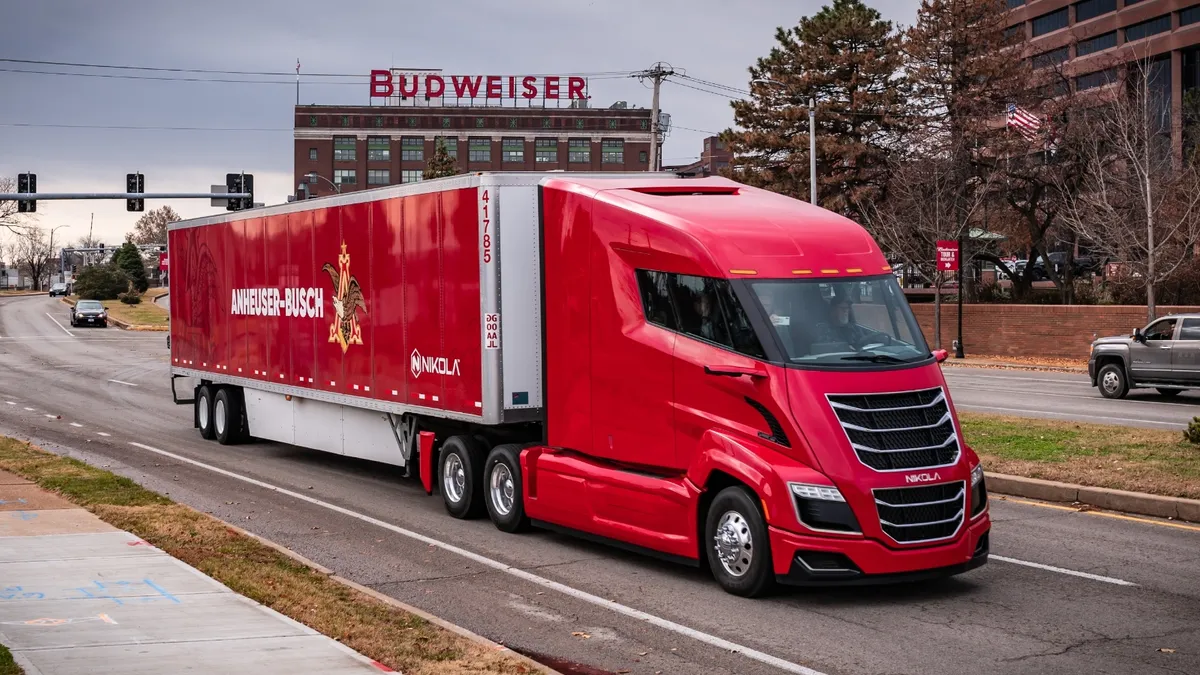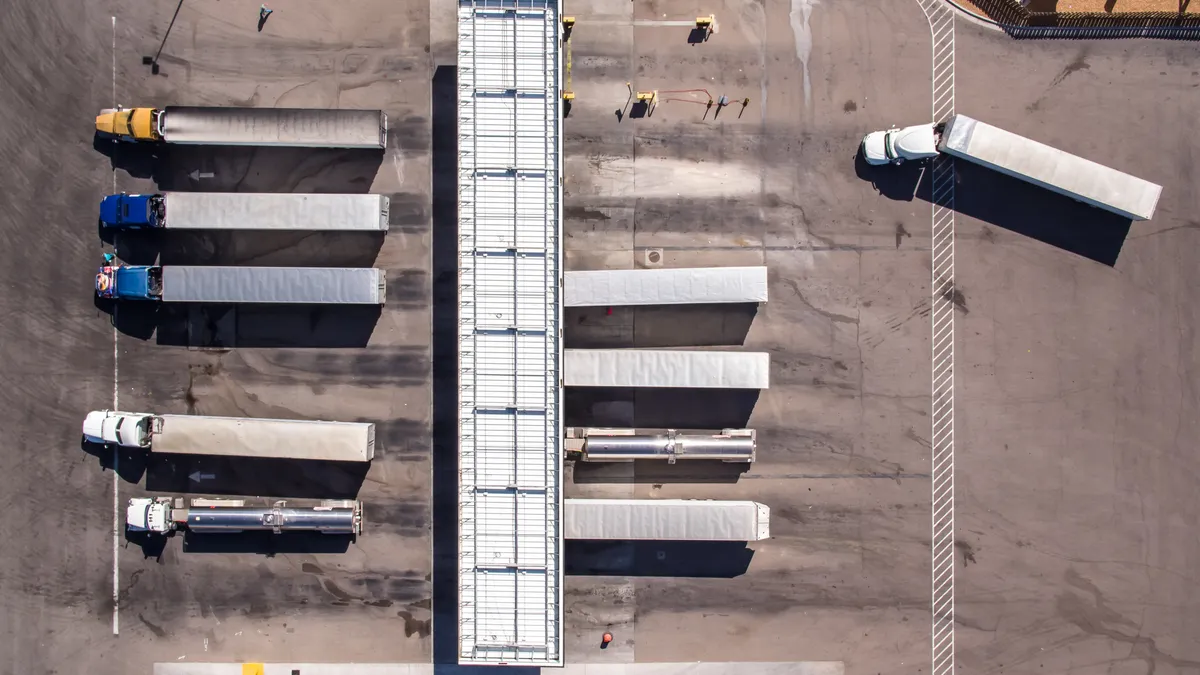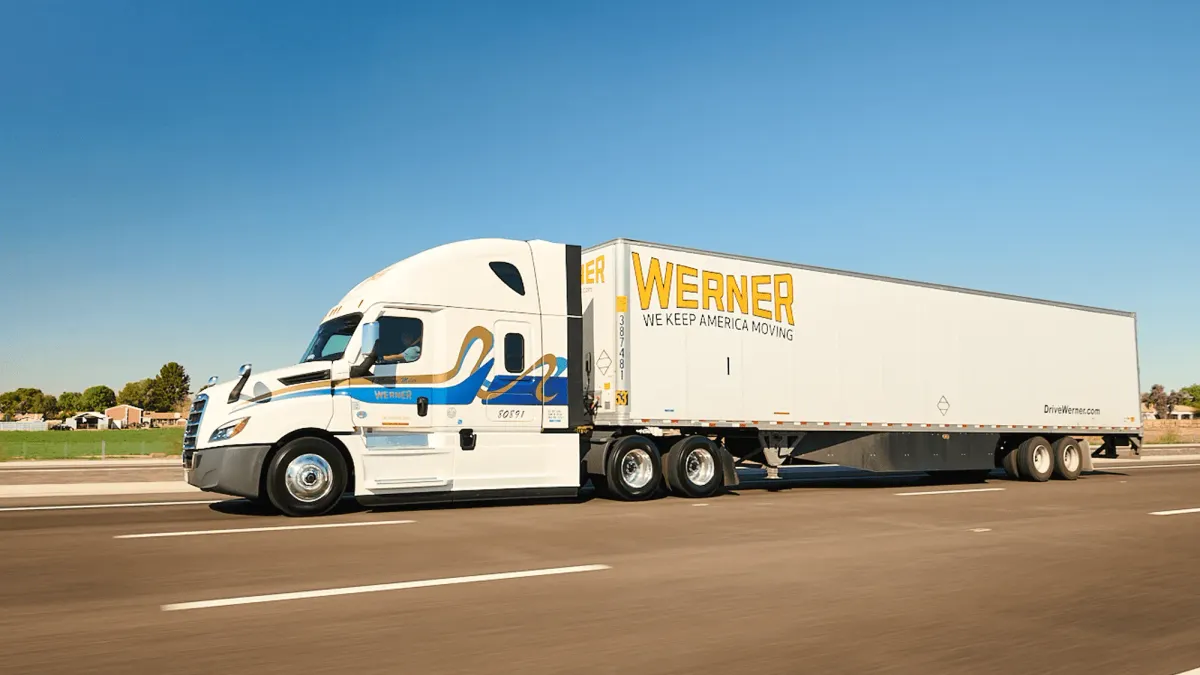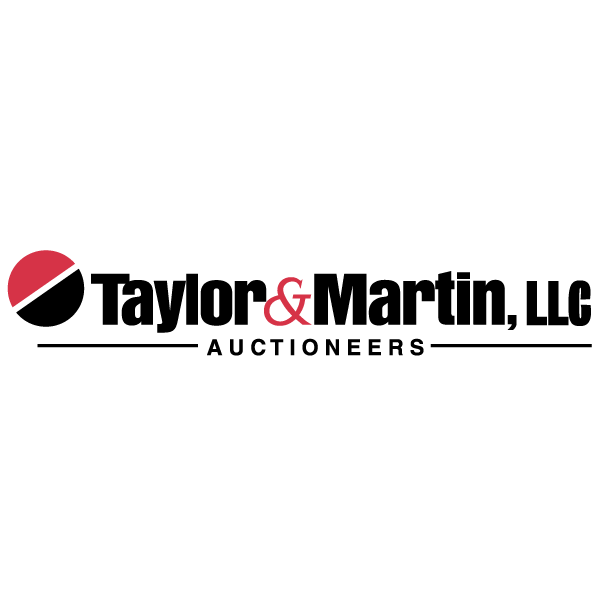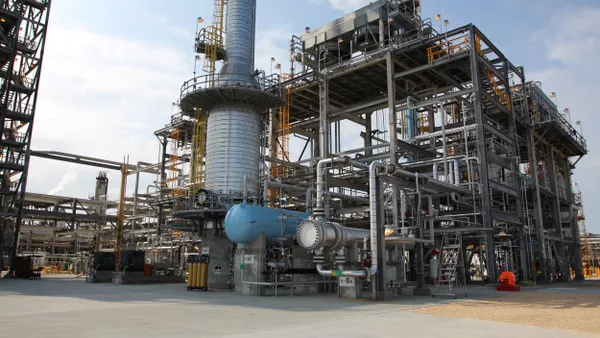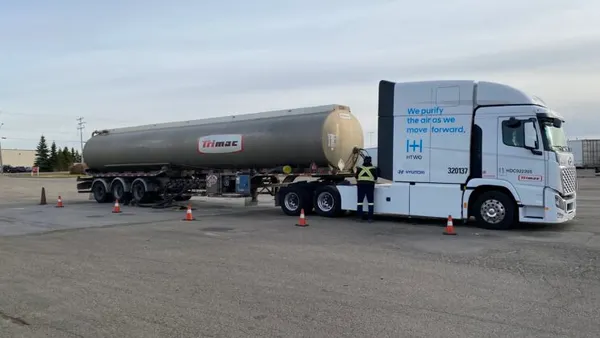Dive Brief:
- Nikola and VectoIQ, a publicly-traded acquisition company, said the two agreed to merge and create a company focused on the development of zero-emission trucks. The new company will be known as Nikola Corp. and is expected to remain NASDAQ-listed under the new ticker symbol "NKLA."
- Nikola said it will use proceeds to accelerate production of battery-electric vehicles (BEV) and hydrogen fuel-cell electric vehicles (FCEV) in the Class 8 truck market and sell to fleets eager to produce zero emissions as they transport goods.
- The deal, valued at about $3.3 billion, will aid Nikola in its quest to supply fleets. Nikola has 14,000 trucks on preorder. The first delivery of battery-electric trucks to European fleets is expected in 2021, a Nikola spokesperson told Transport Dive.
Dive Insight:
North American fleets are under heavy consumer and political pressure to shift to emission-free electric power. The big question is which kind of zero-emission Class 8 truck will prove most efficient, free of breakdowns and unforeseen technical problems.
Nikola has focused on trucks using hydrogen fuel cells, but it is also developing battery-electric vehicles.
The fuel cells produce zero emissions and are lighter than battery-electric systems. Fuel-cell electric vehicles also have longer range than battery-electric vehicles.
But hydrogen-fuel electric vehicles tend to refuel, creating a logistical concern. As an incentive to fleets, Nikola promised to build 700 hydrogen fueling stations in the United States by 2030. Nikola's first such station is at its Phoenix headquarters, used for testing, according to Colleen Robar, a Nikola spokeswoman.
In November, Nikola and electric-vehicle company BYD Motors helped Anheuser-Busch complete its first-ever zero-emission beer delivery in November in the beer company’s hometown of St. Louis. Nikola used a hydrogen-electric truck on its delivery leg.
But Daimler Trucks North America CEO Roger Nielsen told industry leaders in April 2019 that the future of Class 8 trucking would be battery-electric and that his company would focus on development of such trucks.
Robar said the "reverse merger" into VectoIQ will allow Nikola to move faster on production and the delivery of battery-electric vehicles to market. VectoIQ has a facility in Ulm, Germany.
The market for either type of truck appears to be heating up. In January, BYD announced it delivered its 100th battery-electric truck in the United States. BYD said it delivered more than 12,000 zero-emission electric trucks across all classes at the time.
BYD's 100th U.S. truck is a Class 8 truck that will deliver for Anheuser-Busch around the San Francisco Bay area to grocery and convenience stores on a daily basis. The trucks will charge at the Anheuser-Busch Oakland facility overnight, BYD said.
But the industry is also eying electric trucks for longer hauls. On Feb. 23, the North American Council for Freight Efficiency (NACFE) said more fleets should put such trucks into regional use. Mike Roeth, NACFE executive director, said 800,000 of the 1.7 million over-the-road tractors are day cabs, which are regional haulers.

